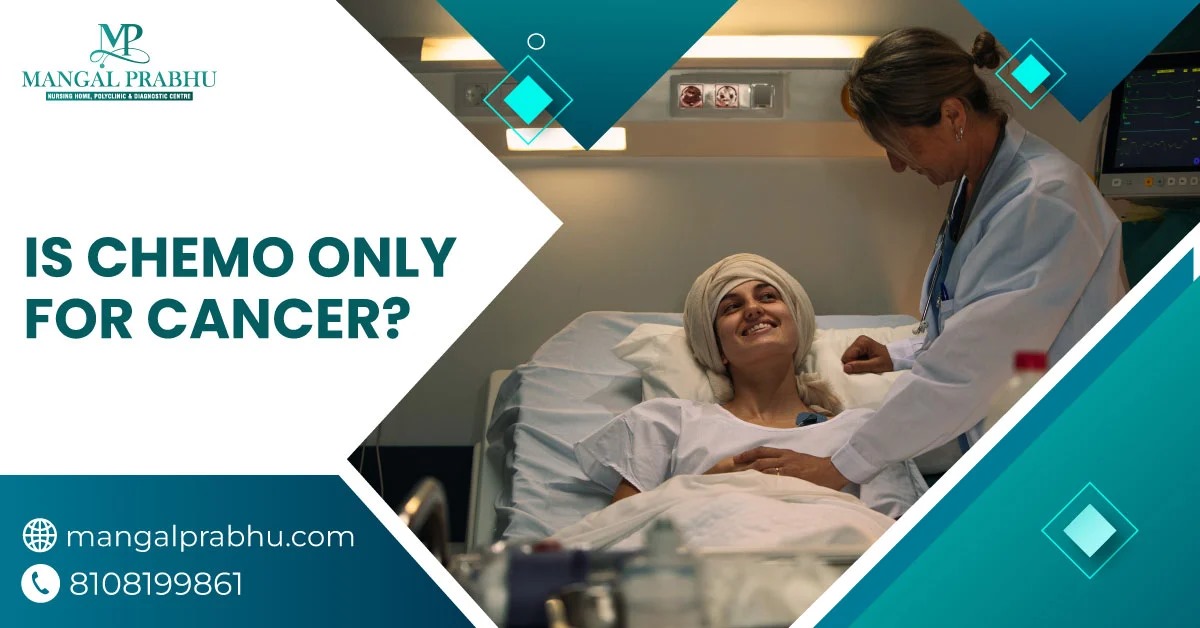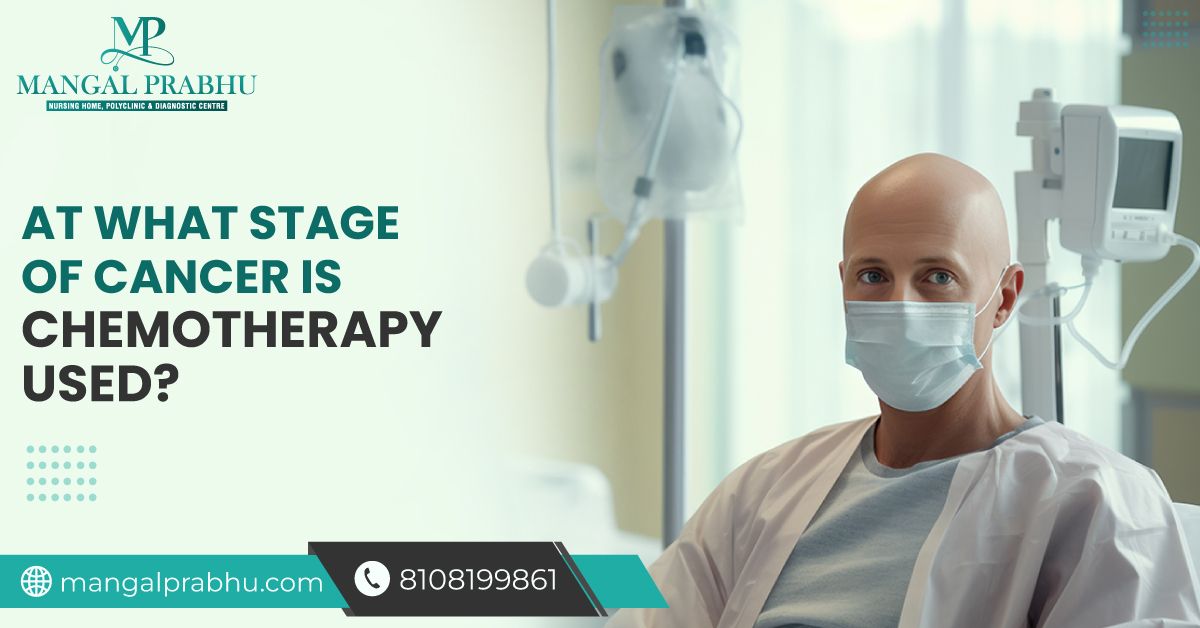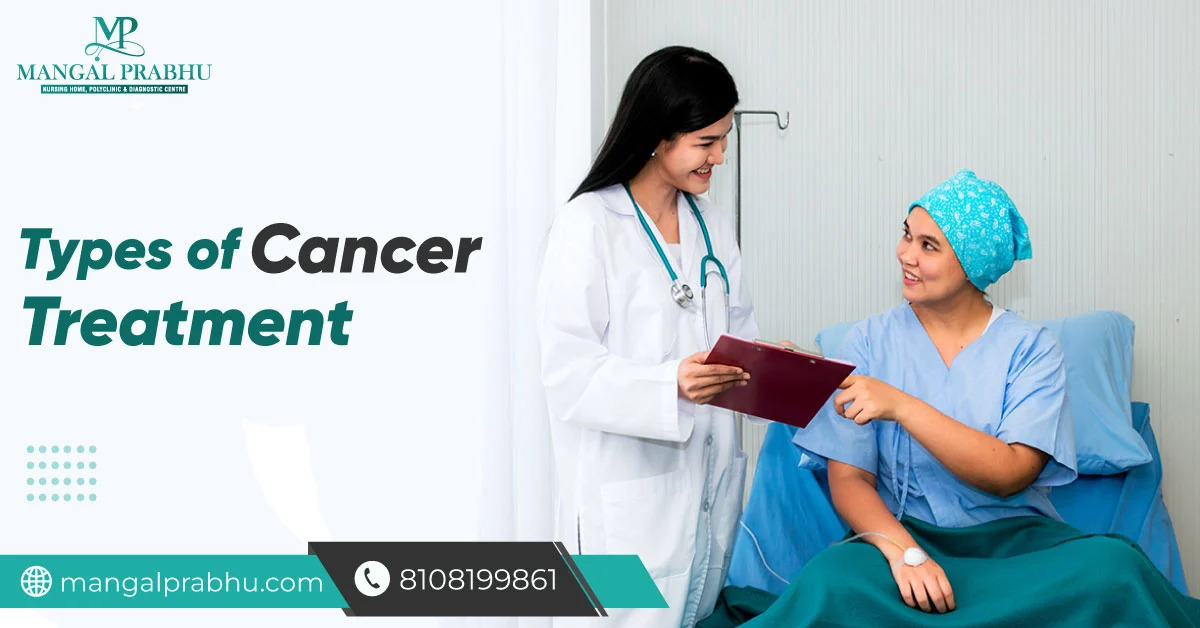
Is Chemo Only for Cancer?
What’s the first word that comes to your mind when you hear the word chemotherapy? Cancer. Chemotherapy is the most common treatment for different types and stages of cancer. Depending on the severity of the cancer, oncologists in Navi Mumbai perform chemotherapy either as a standalone treatment or in conjunction with surgery, radiation therapy, hormone therapy, and other procedures.
The question is, is chemotherapy only for cancer? No! It’s also used to treat certain autoimmune disorders and blood disorders. Let’s see what chemotherapy can treat.
Common Uses of Chemotherapy
For Cancer
More than a hundred types of chemotherapy drugs are used to treat different types of cancer. Cancer cells are known for multiplying rapidly. The initial stage of cancer is often confined to a specific organ, but it can spread to the surrounding tissues, lymph nodes, and organs if left untreated. Treatment gets harder as the cancer reaches an advanced stage.
Chemotherapy drugs kill the rapidly multiplying cancer cells. The goal of the treatment is to stop the cancer cells from growing or replicating. The number of chemotherapies required for each patient can vary depending on their cancer diagnosis and how far it’s spread.
For Non-Cancerous Diseases
Chemotherapy can be used in low doses or high doses for non-cancerous conditions, especially autoimmune disorders.
i) Autoimmune Disorders:
Lupus and other autoimmune disorders, in which your immune system attacks your organs and tissues, can be treated with chemotherapy. The therapy can suppress an overactive immune system.
ii) Bone Marrow Disorders:
Bone marrow diseases in which your bone marrow fails to produce adequate red blood cells might require chemotherapy combined with blood transfusion and bone marrow transplant. Chemotherapy is often performed before a bone marrow transplant to destroy the damaged bone marrow cells.
iii) Infections:
Some types of severe and persistent fungal infections can be treated with chemotherapy. Antifungal agents are used to offer relief to the patient. Viral infections that do not respond to the antiviral medication might also require chemotherapy, especially in patients with compromised immune systems.
Potential Side Effects of Chemotherapy
As mentioned earlier, chemotherapy kills cells that grow rapidly, which might also include the healthy cells in your gut and those responsible for your hair growth. So, side effects are not uncommon after each session. The severity of the side effects and how long they last depends on the chemo drugs you are given and the dosage. Here are possible side-effects of chemotherapy:
- Fatigue
- Hair loss
- Mouth sores
- Memory loss (also called chemo brain)
- Fertility issues
- Nausea and vomiting
- Loss of appetite
- Diarrhea or constipation
The side effects can vary from person to person. These are short-term issues that resolve on their own once the treatment stops and the new cells start to grow. Chemotherapy is also associated with long-term side effects, such as damage to your vital organs, like the heart, lungs, and reproductive system.
Conclusion
You can learn more about different types of chemotherapies and multiple methods used to administer the chemotherapy drugs into your body at the chemotherapy hospital in Navi Mumbai.

At What Stage of Cancer Is Chemotherapy Used?
Chemotherapy is a combination of medications used to kill cancer cells that are growing aggressively and spreading to your different organs. Chemotherapy treatment in Navi Mumbai is recommended for patients diagnosed with different stages of cancer.
It’s considered an effective treatment option for all types of cancers. The type of chemotherapy your doctor advises depends on the stage, type, and severity of the cancer. They might also factor in your age and health goals to determine the most suitable treatment option.
The Different Stages of Cancer
Chemotherapy can be given for stage I to stage IV cancer patients. Most types of cancer are categorized into four stages, and the diagnosis is done based on how aggressive the cancer cells are, where they have spread, and the patient’s health. For most types, cancer in its first stage is restricted to a specific organ, while the same in stage IV is considered metastatic cancer that has spread to the surrounding organs, probably throughout the body.
Here’s how chemotherapy is planned for different stages of cancer.
Stage 1:
Chemotherapy combined with surgery
Stage 2:
A surgical removal of the malignant tumor and several sessions of chemotherapy.
Stage 3A:
Chemotherapy with surgery or surgery followed by chemotherapy, radiation therapy, and immunotherapy, depending on the location of the cancer. If the cancer can’t be removed surgically, then a combination of chemotherapy, immunotherapy, and radiation therapy is prescribed.
Stage 3B and 3C:
Chemotherapy with multiple rounds of radiation therapy followed by surgery and immunotherapy.
Stage 4:
Chemotherapy, targeted therapy, surgery (if possible), followed by more rounds of chemotherapy.
Types of Chemotherapy Drugs
Chemotherapy drugs are a combination of medications consisting of the following:
i) Alkylating Agents:
These are responsible for destroying the DNA of the replicating cancer cells.
ii) Antimetabolites:
These drugs can destroy cancer cells when they are about to grow out of control in your body. Antimetabolites work for breast, ovarian, and other types of cancer.
iii) Antitumor:
The medication changes the DNA structure of cancer cells, restricting their growth and multiplication inside the body. Mitotic inhibitors are also commonly used to treat cancer cells, but they contain a compound that might destroy healthy cells, as well. So, their use is often limited to certain types of cancers.
Benefits of Chemotherapy
Chemotherapy is the most viable cancer treatment for people diagnosed with cancer in different stages and severity statuses. Here’s how it benefits:
- Restrict the growth of the tumor or shrink its size to make surgical removal of the cancer possible
- Prevent the cancer cells from dividing
- Reduces the risk of relapse
Potential Side Effects
Oncologists in Navi Mumbai recommend chemotherapy after considering your age, size, type of cancer, and your health. Before you choose this treatment, know that it comes with side effects. These may vary depending on the chemo drugs used, but some common side effects found in most patients include:
- Fatigue
- Nausea and vomiting
- Diarrhea
- Hair loss
- Mouth sores
- Loss of appetite
- Anemia
- Weakness in muscles
Schedule an appointment with your healthcare to discuss the most suitable chemotherapy option, the length of the treatment, and the risks.

Types of Cancer Treatment
Cancer is caused due to uncontrolled cellular growth due to various factors. Besides the severity and complications associated with cancer, this condition is also hard to diagnose and treat. Cancer treatment helps in treating and preventing further risk of different types of cancers. However, if left unchecked, this rebel cell and its cohorts could wreak havoc on the overall well-being. Thus, it would be best to visit the best Cancer Hospital in Navi Mumbai like Mangal Prabhu to efficiently treat cancer and eliminate the risk of its occurrence. The different types of cancer treatment plans treat various cancer problems that help a patient effectively get through issues and improve strength and mobility. Therefore, this guide provides insight into different types of cancer treatment.
1) Surgery
With surgical precision, surgeons infiltrate cancerous cells, gathering intelligence on the cancer’s stage and extent, guiding the army of treatments in their strategic assault. Every surgeon is unique, and surgery tailors its approach to each individual, adapting its tactics to the specific challenges presented by the terrain of each patient’s body.
2) Radiation Therapy
In radiation therapy beams of energy pierce through the darkness, targeting cancer cells with unerring accuracy. It is the best way of destruction, where DNA is shattered, and cancer’s grip is loosened. An individual may also feel fatigue and burns, but all these things are worth removing cancer cell by cell.
3) Chemotherapy
In the realm of chemotherapy, drugs surge through the veins, laying waste to cancer’s strongholds. It helps in reducing the size of the tumour and also reduces the number of cancerous cells in the body which help in reducing the spread of this issue.
Also Read: How Chemotherapy Is Done?
4) Immunotherapy
The body has its defences that help in the fight against the cancerous cell. Immunotherapy strategy helps in improving the defence ability to fight against cancer. And in the wake of battle, there’s not just victory but resilience—a strengthened immune system, primed to defend against future assaults.
5) Targeted Therapy
Doctors mark molecules for destruction, pathways blocked, and vulnerabilities exploited. By targeting specific vulnerabilities in cancer cells, these experts sabotage their growth and cripple their defences. Targeted treatment zeroes in on specific targets (molecules) in cancer cells. These targets play a role in how cancer cells grow and survive. Using these targets, the drug disables the cancer cells so they cannot spread.
6) Hormone Therapy
Hormone therapy is like a precision strike against cancers that rely on hormones to grow and spread, such as certain types found in the breast, prostate, and ovaries. It’s the strategic move that either removes or blocks the body’s natural hormone production, essentially cutting off the fuel supply for cancer growth. A Cancer Specialist in Navi Mumbai at Mangal Prabhu might opt for a bold manoeuvre, surgically removing hormone-producing organs like the ovaries or testes.
Conclusion
In the vast canvas of battling cancer, each treatment method offers its way through the tapestry of human perseverance. From the surgical procedure to the pinpoint accuracy of targeted therapies, healthcare providers march forward together in the pursuit of triumph.
